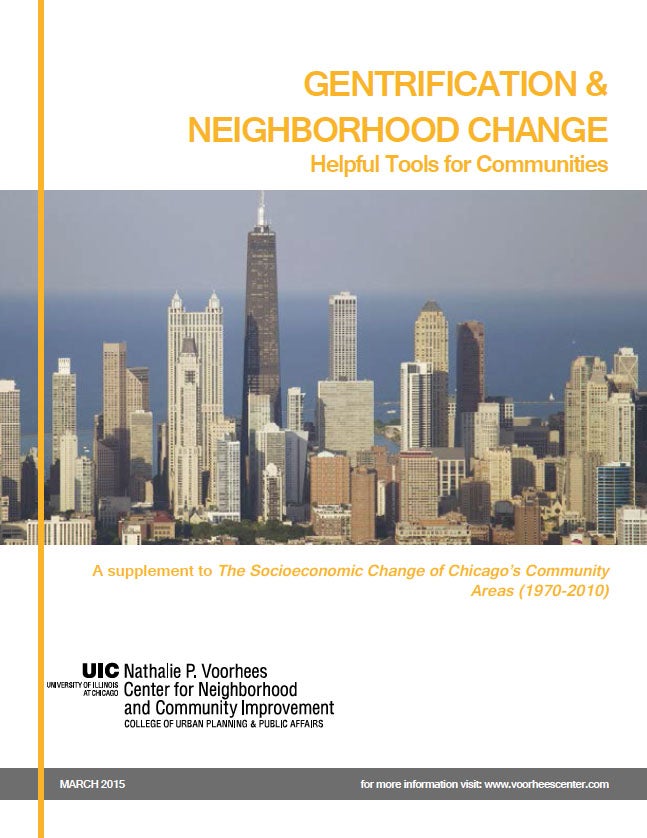Helpful Tools for Communities
Introduction
In conjunction with our Gentrification Index, the Voorhees Center authored Gentrification & Neighborhood Change: Helpful Tools for Communities, which provides strategies for communities that have been or may be affected by gentrification. It details what local communities can do for prepare for and address gentrification-induced displacement, with an emphasis on community empowerment and working together to take action.
The strategies presented in this Toolkit are divided into three categories based on when during the gentrification process they may be of most use —Before Gentrification, Mid-Stage Gentrification, or Late Stage Gentrification.
The full Toolkit explains each of the strategies listed in detail and includes a synopsis of where local policies currently stand regarding each approach, with the hope that this information will help communities work within local opportunities and constraints. Also included is an outline of the pros and cons involved in taking each of these steps so that local residents and organizations can make informed decisions about their approach.
Throughout the Toolkit, there is a strong emphasis on building partnerships with local officials, community businesses, and neighbors, encouraging likeminded people to collaborate.

Tools for Addressing Gentrification:
Before Gentrification
-
Coalition Building
-
Tenant or Non-Profit Developer “Right to Purchase”
-
Community Land Trusts
-
Inclusionary Zoning
-
Limited Equity Co-op Housing
-
Community Benefit Agreements
Mid-Stage Gentrification
-
Strengthened Rental Protections for Tenants
-
Tax Abatement Policies
-
Protections Against Condominium Conversion
-
Rehabilitation & Preservation
Late Stage Gentrification
-
Employer Assisted Housing
-
Affordable Housing Trust Fund
-
Housing Levies
-
Addressing “not-in-my-backyard” sentiment